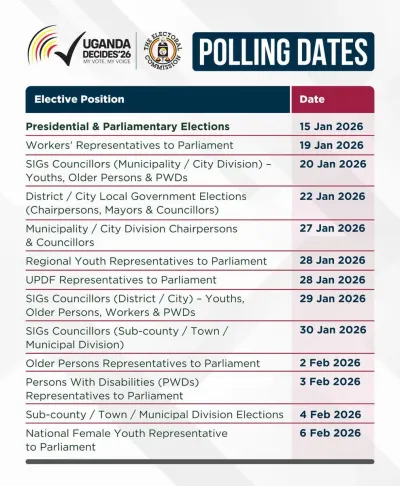
Why is it difficult for a local supermarket, particularly Ugandan Economy, I have been telling my students that our national economy does not work; it is structured not to work; and unless we change the policy framework and the way the economy is structured, we will not achieve our national goals and the massive potential that our country has.
In April 2011, I wrote in these pages a piece entitled, “We are talking and consuming ourselves into inflation.” In that piece I showed why it was wrong for us, Ugandans, to blame inflation on drought, the appreciating dollar and oil prices — the factors we love to cite whenever inflation increases. I used my own experience to illustrate how we are entirely responsible for our volatile economic situation.
One day, I carried out a simple survey in my house. I woke up, having set my alarm clock (Made in China) for 5am, to research about Uganda’s trade policy. I switched on my bedside lamp (Made in India), pulled out my laptop (Made in South Korea) and sat on my reading table (Made in Malaysia) to read some policy documents related to Uganda’s economy.
After a moment of reflection I remembered the routines. I put on my Bata sandals (Made in Kenya), rushed to the washroom (with all its accessories made in India and China) and picked my toothbrush (made in Kenya) and paste (Made in Brazil). I washed my face with Geisha soap (from Kenya), pulled out a towel (Made in China) and headed for the living room for the Morning Prayer (Made in Saudi Arabia). I pulled out my prayer mat (Made in Tanzania) and recited those Arabic words to guide me through the day full of aliens.
After the prayer, I turned on my TV (Made in Japan) to watch the morning news (read by a Kenyan) in which the newsreader informed me that Uganda’s current account deficit had widen to $1,095 million, while inflation had reached double digits, with food inflation accelerating at 26%. I wondered little.
Before long I realised that time was not on my side, so I picked my electric kettle (Made in China) to fix myself a cup (Made in India) of Nescafe (Made in South Africa). I reached for some biscuits (Made in Egypt) and a piece of bread (baked by a Kenyan at Nakumatt Supermarket) coated with blue band (also from Kenya). After taking the tea I felt pieces of bread had clogged some gabs in my teeth. So reached out for toothpick (Made in China), opened the refrigerator (Made in China) for a glass (Made in China) of Ceres juice (Made in South Africa).
Ushs. 3 trillion trade deficit!
After the breakfast, I put on my shirt (Made in USA), jeans (Made in China), and a pair of shoes (Made in Italy). I jumped into my car (Made in Japan) drove to the nearest filling station for some fuel (Made in Libya), went to the bank (owned by the British and managed by a Kenyan) to draw some money (printed in Sweden) to buy my mother some basimati rice (from Pakistan).
I reached my pocket for my cellophane (Made in China) to call my mother to let her know, the rice was on the way to Butambala, my ancestral home. Afterwards I headed to MUBS to teach my students Uganda’s trade balance. I reported to them how our trade deficit had increased over $1.09 billion (or over Ushs. 3 trillion).
In the Background to the Budget, which we use as a key reference for the course of Ugandan Economy, the authors of our economic statistics and literature attribute the huge deficit to the usual textbook factors: Euro zone economic crisis, drought which affected agricultural productivity, inflation, exchange rate volatility etc.). I asked my students to critique these “official” causes of our high trade deficit by doing a similar check around their hostel rooms and count the number of items in there with a label, “Made in Uganda.”
On reporting back two days later, one of my students said, “Sir, I found three items in my room made in Uganda: water, this Nice pen, and myself!”
So what is problem?
I bump into in Uganda’s problem every time I go to a supermarket to shop for the usual groceries and general merchandise. At my favourite store, Capital Shoppers, the shelves are stuffed with simple items that Ugandans produce — mangoes, potatoes, popcorns, frozen chicken, etc. — but on scrutinizing the paper in which they are wrapped, I realise they are imported.
So I keep asking myself, why is it difficult for a local supermarket, owned by a Ugandan, to stock popcorns from a Ugandan woman somewhere but find it easy to sell popcorns from the U.S.? I asked a manager at Capital Shoppers why this was the case. He told me we only sell certified items. I was in a hurry to probe him further.
This week I asked Dr. Joshua Mutambi, the Acting Commissioner for Industry and Technology Department at the Ministry of Trade, Industry and Cooperatives, the same question. It was Moses Byaruhanga, your Political Assistant, who gave me a convincing answer. He narrated the experience he has had since he started adding value to milk, processing it at the Uganda Industrial Research Institute (UIRI) as an incubatee.
When Moses started processing his milk, the now well-known Mega Milk, he went to the big supermarkets to look for the market. In all the Supermarkets he was asked the following as if they all rehearsed; UNBS certification, barcode, tax clearance, etc.
While these are the standard procedure, he said getting them in Uganda is a big problem. To get UNBS certification, he had to go through several procedures, one of them being calibration of equipment. UNBS doesn’t have enough people to do calibration. So he was told that the person responsible was in Jinja doing the same work and the next day he was in Masaka. For the barcode (an optical machine-readable representation of data relating to the item to which it is attached), Moses was advised by UNBS that the nearest place he could get barcodes for his milk was Nairobi. Whom are they telling this? Senior Political Assistant to H.E. the President.
One wonders how an upcoming popcorn-maker somewhere in Kireka or Katwe is going to get barcodes from Nairobi. Even when he goes the extra mile and get it, the Super Market will tell him they have no space for his product. That is exactly what they told Moses when against all odds he had secured the UNBS certification. In the meantime, the importers will be saturating the market with products certified abroad.
Another impediment to getting “Made in Uganda” label in our supermarkets is the fact that when they finally accept to stock your product, they make you sign an agreement to the affect that they will pay you in 45 days. If say you supply them at the end of February, they pay you in April! And someone in Ministry of Finance or Ministry of Trade is busy arguing how “ours is a free-market, private-sector driven economy and as government we have nothing to do.” Even the grandparents of capitalism, the free-market economics, we worship, regulate markets. In the UK, for example, there is a regulatory body between supermarkets and suppliers.
Where did it go wrong?
Like I have written in these pages before, when the architects of the liberal economic reforms asked us to free the economy of “government failures” we took it literally to mean that government had no role whatsoever to play. True under “neo-liberal” policies we have seen our GDP grow; inflation was contained; household poverty (at headcount) reduced; foreign investors came etc.
However, our growth profile has remained jobless; household incomes stagnated (we are busy building a rich economy with poor people); banks came, made a lot of money but created a savings crisis and it is difficult to use their money to build industries to add value to our produce and create jobs etc.
In my view, we liberalised too far, too fast. Prior to the reforms, experts told us that the economy was stagnating because there was too much Government and too little market. Today, many of Uganda’s problems stem from having too much market and too little government. Putting it another way, while government is doing some things that it shouldn’t, it is also not doing some things that it should.
Way forward? Next week I will propose what can be done, without engaging in policy reversal (since it is often empirically fatal), to get Uganda’s economy back on track. In particular, I will show what countries are doing to build capacity of their people to compete in regional and international markets.














Ramathan Ggoobi
Ramathan Ggoobi is Policy Analyst, and Researcher. He lecturers economics at Makerere University Business School (MUBS) and has co-authored several studies on Uganda's economy. For the past ten years, he has published a weekly column 'Are You Listening Mr. President' in The Sunrise Newspaper, Uganda's Leading Weekly
Leave a Comment
Your email address will not be published.